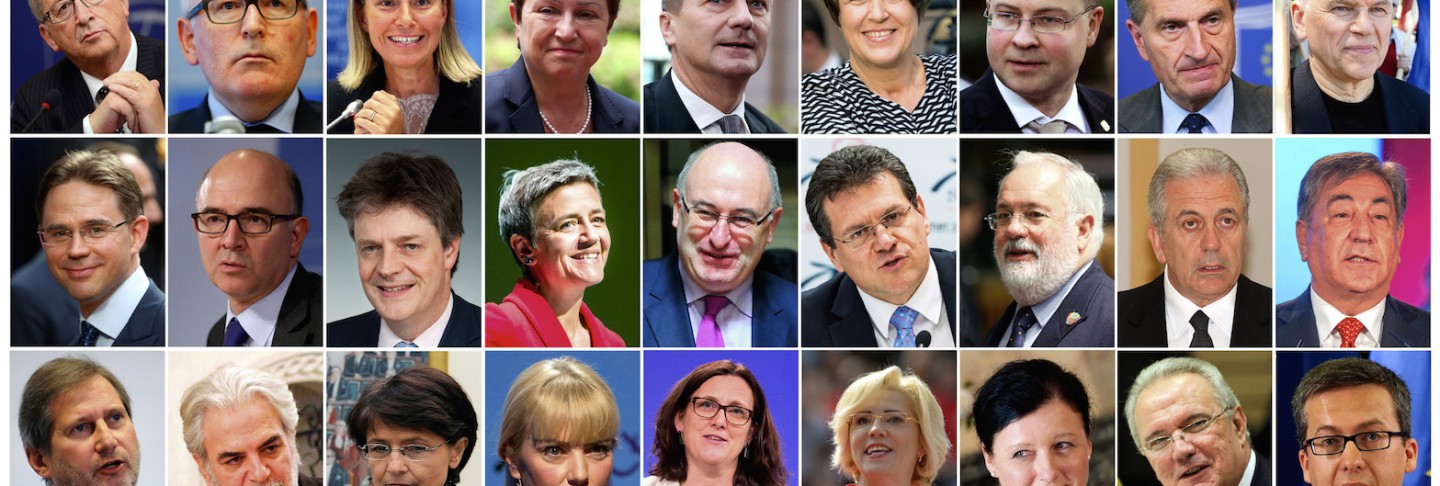On July 15, I approved Jean-Claude Juncker’s mandate to form a Commission. Today I’m voting against his Commission in plenary – because it has already failed to live up to the expectations and announcements.
Few glimpses of hope on Internet policy
In his priorities paper Jean-Claude Juncker announced that copyright reform would be initiated within six months. Encouragingly, the responsibility for this has been transfered from the Directorate-General for the Internal Market to the Internet portfolio. But the designated Commissioner Günther Oettinger started backpedaling immediately, speaking of “next year” or “the first half of the legislative period”, of further hearings and of wanting to avoid rushing into something. His words on copyright are far less convincing than those of his predecessor Neelie Kroes, who has urged swift decisive action.
Since his nomination, Oettinger has already given several reason for concern, casting doubt on his aptitude for the role of Commissioner on Digital Economy and Society. His statement on celebrities’ private photos was troublesome not only from a data protection standpoint. He does not support the Parliament’s net neutrality position, but does support French internet blocking laws in order to keep the world safe from, among others, “anarchists”.
His colleague Andrus Ansip, the designated Vice President for the Digital Single Market, performed much better and encouragingly agreed to my proposal to start a dialogue with the internet community right away. However, it remains to be seen exactly how the cooperation will work between Oettinger with his vast staff headcount and his Vice President, who controls considerably fewer resources.
Juncker has promised a speedy passage of the data protection regulation. In the course of the Commission hearings much paid lip service was paid to that goal, but specific proposals on how to break the blockade of the Council were lacking.
Failed promises on transparency
Juncker has promised to publish the text of the controversial TTIP free trade agreement. The only thing published so far is the negotiating mandate – a mere 20 pages that had already leaked previously. The designated Commissioner for Trade Malmström did not raise any hopes that the text would be published anytime soon. Malmström removed a sentence stating that private dispute resolution (ISDS) could “clearly not be part of the agreement”, which had apparently been inserted by Juncker’s office, from the final version of her letter to the Parliament. In his inaugural speech before the Parliament this morning, Juncker defered whether ISDS would be in TTIP to his Vice President Frans Timmermans, shirking political responsiblity for this important matter. The Dutch government, to which Timmermans belonged until today, has consistently defended ISDS.
Misguided appointments
Team Juncker’s candidates also are not deserving of approval in other areas of policy:
- Tibor Navracsics will be responsible for Education and Culture, despite being involved in restricting freedom of the press in Hungary as a member of Viktor Orbán’s government.
- Miguel Arias Cañete owned shares in oil companies up until right before his nomination as Energy Commissioner, and the companies remain under the control of members of his family. He also directed disparaging sexist remarks at a political contender during the elections.
- Jonathan Hill, the designated Commissioner for the Financial Market and the Banking Union, didn’t want to disclose which companies and banks were customers of his consultancy firm.
Despite Juncker’s efforts to convince more member states to nominate women, only 32,14% of the new EU Commissioners are female – an even lower percentage than the previous Commission’s.
Conclusion: that won’t do
In many respects, Juncker’s promises had to be revised already. The European Socialists and Democrats rubber-stamped several unacceptable nominations to secure their own doubtful contender Moscovici. The politicization of the Commission cannot mean that obvious conflicts of interest and infringements of fundamental rights are overlooked.
For those reasons, I’m voting to reject this Commission.
To the extent possible under law, the creator has waived all copyright and related or neighboring rights to this work.

Gibt es den Text für die, die Dich gewählt haben, auch noch in deren Landesprache (Deutsch). Wir würden uns freuen, das hürdenfrei lesen zu können.
Danke
Selbstverständlich! https://juliareda.eu/2014/10/mein-nein-zur-neuen-kommission/
Let’s hope this can be brought up before other representatives and that the majority is not as blatantly corrupt.